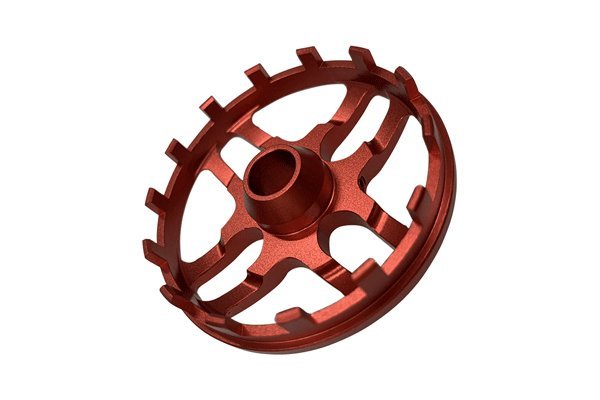Did you know that, according to research, the use of polymer materials in CNC machining has increased by over 30% over the last decade? This dramatic rise highlights the remarkable shift in modern manufacturing processes where lightweight, durable materials take center stage. As industries continue to evolve and embrace innovative solutions, polymer materials have emerged as frontrunners in the realm of CNC (Computer Numerical Control) machining prototypes.
The purpose of this blog is to delve deep into the intrinsic advantages of leveraging polymers for CNC prototypes, investigating how these materials can not only streamline production but also lead to enhanced performance characteristics in manufactured products.
Understanding Polymer Materials
To appreciate the benefits of polymer materials in CNC machining, it’s essential to understand what polymers are. Polymers are large molecules composed of repeating structural units called monomers, which are bonded together in a chain-like manner. They can be naturally occurring, like rubber and cellulose, or synthetically produced, like polyethylene and polypropylene.
Types of Polymer Materials
The Benefits of Using Polymer Materials in CNC Prototypes
One of the most significant advantages of using polymer materials is their lightweight nature compared to traditional metal materials. This characteristic is particularly beneficial in industries such as aerospace and automotive design, where reducing weight translates to enhanced fuel efficiency and improved performance.
Polymers tend to be less expensive to both source and process when compared to metals. The lower material costs combined with reduced machining time help keep project costs down, making them an attractive option for companies looking to stay competitive.
The versatility of polymers allows for intricate designs, which may be challenging with metals. CNC machining enables the production of complex and detailed geometries that can fulfill specific design requirements, thereby broadening creative possibilities.
Many polymer materials offer excellent resistance to chemicals and corrosive substances, making them suitable for various applications in industries like pharmaceuticals, food processing, and marine. Their ability to withstand hostile environments can prolong the lifespan of CNC prototypes in practical applications.
Polymers typically exhibit lower thermal conductivity compared to metals, providing thermal insulation properties that can be advantageous in applications requiring heat management.
The inherent sound-dampening characteristics of many polymers can also be essential in applications where noise reduction is crucial, such as in electric vehicles and HVAC systems.
With advancements in CNC technology, machining polymer materials has become highly efficient, allowing for faster production rates without compromising quality. The adaptability of CNC machines to handle a wide variety of polymers significantly enhances processing capabilities.

Applications of Polymer CNC Prototypes
Aerospace Industry
In aerospace, weight savings are critical. Polymers are often used for components such as brackets, housings, and even interior components. The reduced weight can lead to significant fuel savings and improved operational efficiency.
Medical Devices
The medical industry requires precision and reliability. CNC machining of polymers enables the production of surgical tools, prosthetics, and other medical devices with exceptional accuracy and biocompatibility.
Automotive Parts
In the automotive sector, polymers are extensively used for interior components, trims, and even some structural parts. Their combination of strength and lightweight characteristics has expedited automotive design and improved performance.
Consumer Products
Consumer electronics often leverage polymer prototypes for housings and components. Their ability to be easily molded and finished allows for the creation of aesthetically pleasing and functional products.
Industrial Applications
Polymers are used in manufacturing jigs, fixtures, and tooling parts. Their chemical resistance and durability make them ideal for producing components that are subject to heavy use without wear and tear.
Overcoming Challenges With Polymer CNC Prototypes
While polymers offer a range of benefits, there are challenges associated with CNC machining that must be addressed to harness their full potential effectively.
Machining Parameters
Determining the proper cutting speed, feed rate, and tooling is crucial when working with polymers. Each material demands specific configurations to avoid melting or deforming during the machining process. The use of specialized tools and techniques can enhance the outcome by ensuring precision.
Material Selection
Choosing the right polymer for a specific application is fundamental to achieving the desired performance. Factors like UV resistance, temperature stability, and impact resistance must be evaluated based on the application needs.
Post-Processing Requirements
Polymers may require secondary operations, such as sanding, polishing, or surface finishing, to meet aesthetic and functional requirements. Understanding the necessary post-processing can help optimize the overall manufacturing workflow.
Future Trends in Polymer CNC Machining
Smart Polymers
Smart polymers can change their properties in response to environmental stimuli, presenting exciting possibilities for futuristic applications across industries, particularly in user-responsive design.
3D Printing Integration
As additive manufacturing technologies evolve, integrating 3D printing with CNC machining offers new opportunities to create complex structures and prototypes more efficiently. Combining the two methods allows for rapid prototyping while utilizing the benefits of both processes.
Sustainability
The trend towards sustainable manufacturing solutions is impacting polymer selections significantly. Bio-based and biodegradable polymers are predicted to be on the rise, responding to calls for eco-friendly design and manufacturing practices.
In conclusion, the advantages of using polymer materials for CNC prototypes are vast and varied. From cost-effectiveness to design flexibility and manufacturing efficiency, polymers have empowered industries to innovate and accelerate production while meeting challenging demands.
Incorporating polymers into CNC prototype manufacturing represents not only a strategic investment in time and resources but also a long-term commitment to creativity and performance. As we have explored, the advancements in technology and materials are reshaping modern manufacturing landscapes, making it imperative for industry stakeholders to remain informed and adaptable.
Ultimately, understanding the dynamics of polymer materials in CNC machining is crucial for staying competitive. Polymers are here to stay, and their importance in the manufacturing cycle is a topic worth your attention as we navigate the future of production. Consider how your applications could benefit from the unique properties of these materials, and reimagine what is possible in your manufacturing processes.






